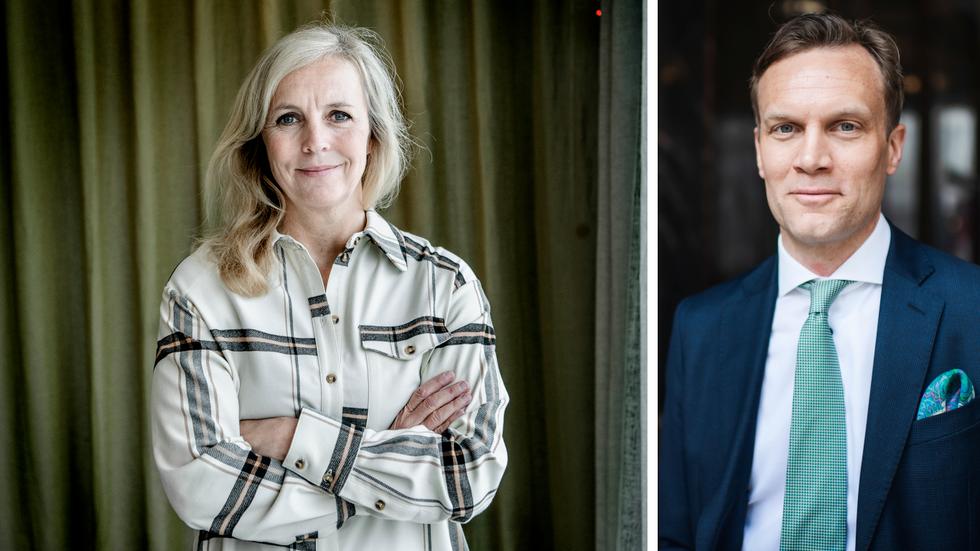Ok, explicaciones variopintas de por qué llevamos cuatro años de recesión en Suecia, el gasto familiar bajo mínimos... y ni una puta palabra de la vivienda. PUES QUE SEAN 5 años más!
https://www.svd.se/a/4B2XXq/social-norm-kan-fa-lagkonjunkturen-att-droja-sig-kvar
Household confidence is declining: "People are getting angry"
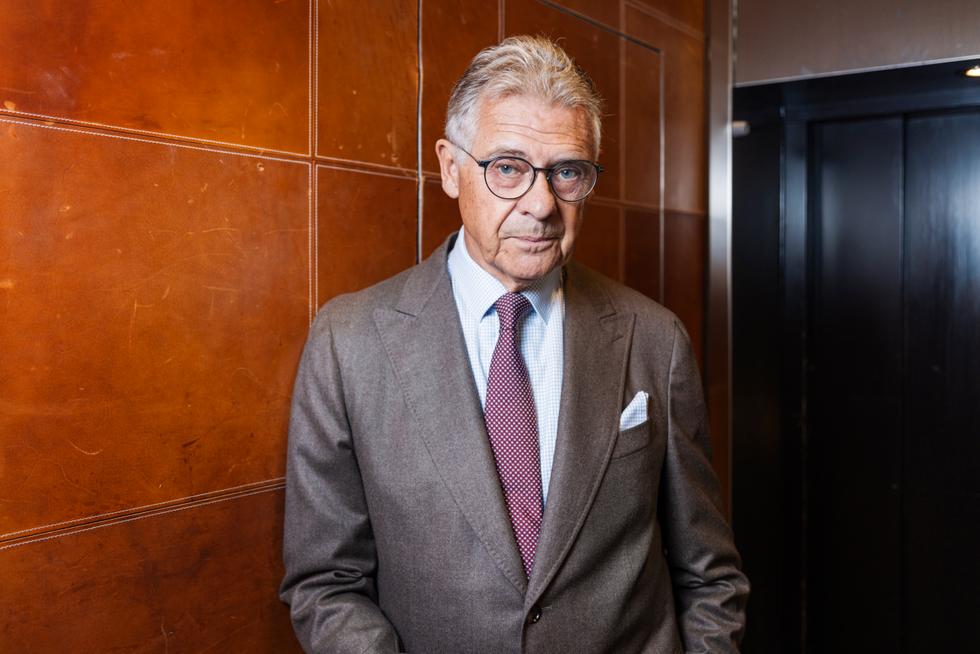
Economist Klas Eklund asks whether the recession is “the new normal.” Photo: Josefine Stenersen
Households are holding tight to their wallets, unemployment is high and uncertainty about the future is great. Now economists are warning that the current recession could be a new economic normal. “Many have scars on their souls,” says Klas Eklund.
Text: Birgitta Forsberg . Photo: Josefine Stenersen .
Published14:15
Ever since the pandemic, economists have been predicting that the economy will pick up – next quarter. And when that hasn’t happened, they’ve said: next quarter. Now, four years later, the recession continues to take hold.
“There have been failed recovery forecasts for a lot of quarters over four years,” says economist Klas Eklund, now chief strategist at investment company Dahlgren Capital.
Swedes simply refuse to go shopping. And since consumption makes up around half of GDP, this has a negative effect on growth. Consumption simply needs to get going to reverse the trend.
– Households have been more cautious than forecasters thought they would be, says Klas Eklund.
Growth and consumption remain around zero
Annual rate per quarter in constant prices, compared to the same quarter the previous year.


Source: Statistics Sweden. Graphics: Liv Widell
He points out that economists did not predict that inflation would skyrocket in 2022 and that mortgage rates would rise sharply.
– Although interest rates and inflation expectations have come down, many people have scars on their souls. They don't trust inflation forecasts and interest rate forecasts as much anymore. They want buffers, he says.
Shocks have shaped the economy
The inflation shock and the many interest rate hikes were followed by Russia's full-scale invasion of Ukraine and Trump's trade war.
In addition, unemployment is at a high level, he points out. In June this year, unemployment was 9.4 percent, according to Statistics Sweden.
“The question is whether this situation is permanent or temporary. Whether it is the new normal or just a prolonged recession that will eventually turn upward,” he says.
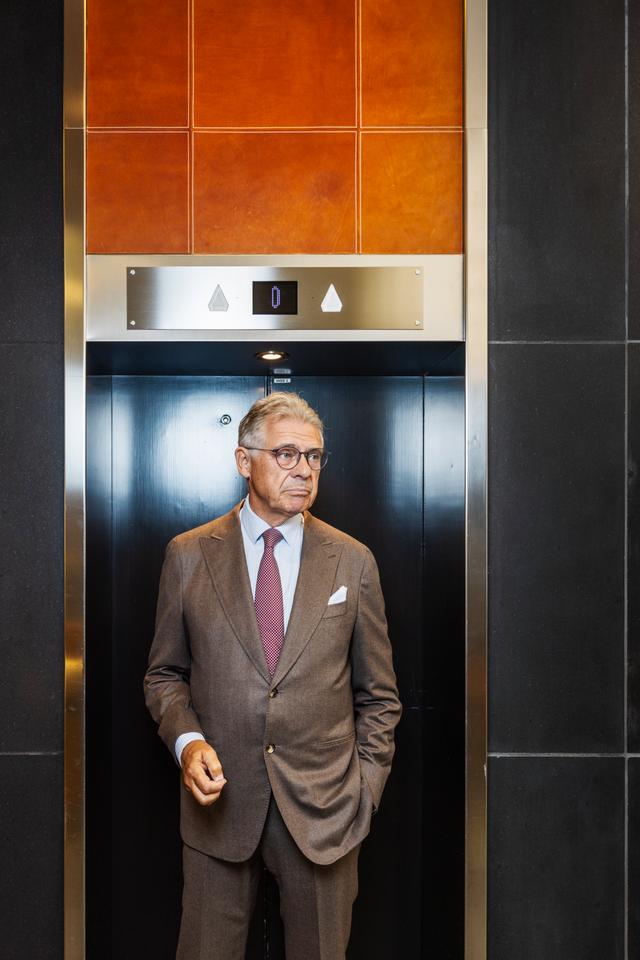
Klas Eklund. Photo: Josefine Stenersen
Forecasters usually assume that the economy will return to a state of equilibrium after disturbances.
This is evident, among other things, in the forecasts of the Riksbank and the National Institute of Economic Research, which point towards 2 percent inflation and normal growth in the long term, respectively, points out Klas Eklund.
But in this new situation, the old models no longer work, he believes.
– Perhaps the time preceding the pandemic with extremely low interest rates for ten years is the exception, he says.
Then we can see a turnaround
He points out that the superpowers the US and China use trade as a weapon of economic power. This makes it more difficult for companies to maneuver, requires more time to rearrange production lines, results in higher costs and weaker productivity growth.
– It's not at all surprising that we have weaker growth and a little more inflation.
Nevertheless, inflation has calmed down.
– When we economists trumpet that inflation has now been defeated while people see prices rising, people become angry and uncertain about the future.
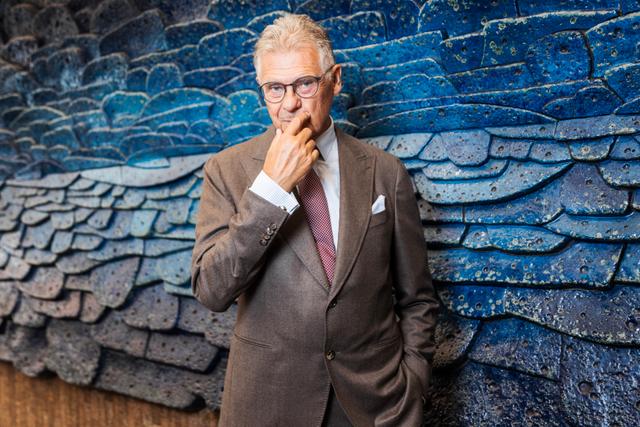
Klas Eklund began his career on the far left, but became a cabinet minister in the Social Democrats' government office in the 1980s. Photo: Josefine Stenersen
Klas Eklund points out that falling inflation does not mean falling prices, but slower price increases.
He adds that he has warned about this situation.
– I am a sour guy.
Don't you see any lightening?
– If there is a lot of happy, good news, for example about geopolitics, then things could turn around. If the trade war subsides and if there is a peaceful solution to the war in Ukraine. But right now it doesn't look like that.
That's why we hold onto the money.
When people experience uncertainty – with threats of war, climate threats and unemployment – our risk-taking decreases and we become more cautious with our money.
This is what Christina Garsten, professor of social anthropology at Uppsala University, says.
“During tough times with high uncertainty overall, not only economically but also politically, people talk about holding back. Being responsible and frugal becomes a social norm, a social mood contagion,” she says.
She continues:
– It becomes a self-fulfilling prophecy. When many people act cautiously, it reinforces the recession, which in turn makes people expect even worse times.
But if you think there will be war and perhaps hyperinflation, shouldn't you buy the money while it's worth something?
– Some do, but most people are trying to prepare for a future with a higher degree of uncertainty.
Unemployment is taking hold – young people continue to be hard hit
Since the pandemic, unemployment has remained consistently high. The trend is around 8.7 percent, and youth unemployment is nearly three times as high – over 23 percent in June.


Source: Statistics Sweden. Graphics: Liv Widell
Annika Winsth, chief economist at Nordea, has a slightly more positive view of the future. She believes that growth will gain some momentum in the autumn, so that GDP will grow by 1 percent this year – roughly as the National Institute of Economic Research predicts.
So this isn't the new normal?
– No, it's more that households have pent-up demand now. They've been consuming cautiously for several years and need to buy new clothes, furniture, etc. It's more that it's the uncertainty that's holding them back.

Christina Garsten. Photo: Mikael Wallerstedt
She points out that households have historically high savings, that they have paid off some of their debts and that Finance Minister Elisabeth Svantesson (M) has signaled that the Moderates want to strengthen households via the autumn budget.
In addition, Annika Winsth believes that inflation will fall during the autumn.
– The uncertainty that has been global is becoming less and less as various trade agreements come into place.
Annika Winsth continues:
– The sudden changes, that one day it's this way and the next it's that way, have been difficult for companies to handle and it has also made households cautious.
Something that further helps growth is that Sweden invests in defense and the justice system and that municipalities have quite large needs, she believes.
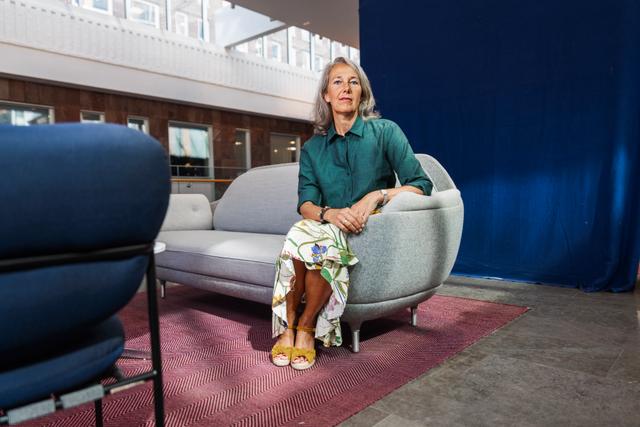
Nordea's chief economist Annika Winsth believes the economy is turning upwards. Photo: Josefine Stenersen
GDP fell 0.2 percent in the first quarter compared to the previous quarter, according to Statistics Sweden. If the GDP figures for the second quarter, which will be released on August 29, are also weak, it will be a bit worrying, according to Annika Winsth.
– This will increase the pressure on the Riksbank to lower the interest rate.
SEB's house price indicator for August shows, on the contrary, that many households believe that the Riksbank will have raised the interest rate within a year, from 2 percent to 2.19 percent.
Nevertheless, households were a little more optimistic in August than in July.
“The market is pricing in a reduction of 0.25 percentage points this year,” says Annika Winsth, emphasizing that Nordea believes that the Riksbank will keep the interest rate unchanged.
Klas Eklund points out that the Riksbank's policy rate is not very useful for regulating inflation driven by a higher cost situation due to the war in Ukraine and the trade war.
Regarding unemployment, which is one of the highest in the EU, Annika Winsth says:
– You're comparing apples, oranges and bananas. We have many students and high school graduates looking for summer jobs. It was a third of the unemployment rate last year. In other countries, three-semester grades and study grants are enough.
AI could be the savior
But politicians should do something about the part of unemployment that is structural and stems from exclusion, among other things, she believes.
– You should consider some kind of apprenticeship.
Social anthropologist Christina Garsten sees jobs as a central factor in reversing the recession.
She believes that people feeling included can ultimately contribute to a more vibrant economy.
– Youth unemployment must be prioritized. Jobs must be created for young people so that they can quickly enter society, but in recent years, investments in labor market policy have decreased.
Klas Eklund instead sees AI as the lifeline for growth.
– We now see that the big tech companies are driving AI development, but the big effects on the economy will come when the technology is fully used in other companies, perhaps in a few years. Then production can take off and provide both higher growth and higher productivity.


